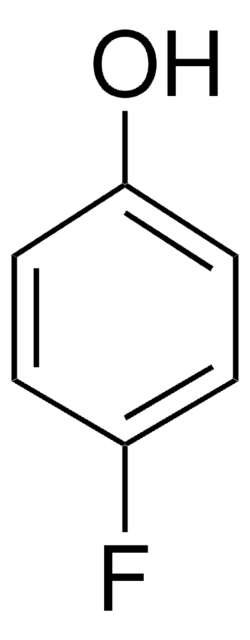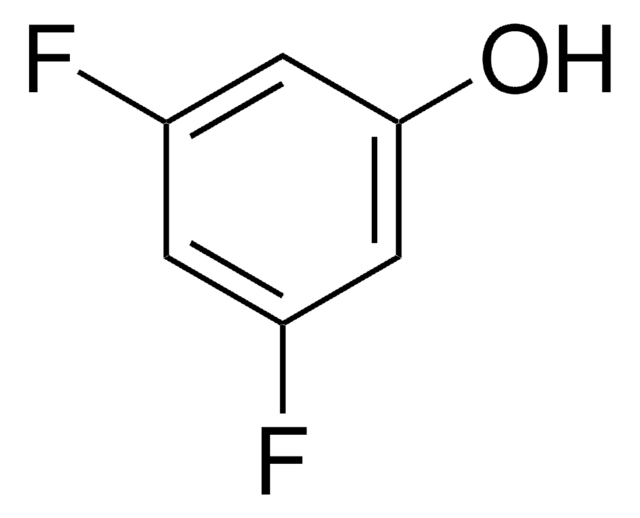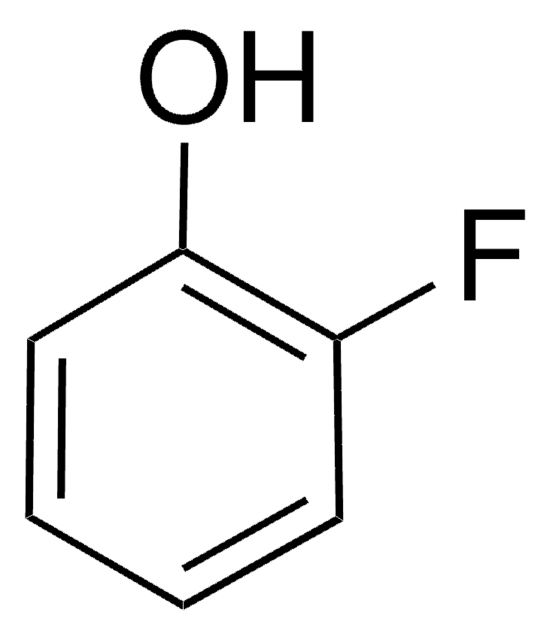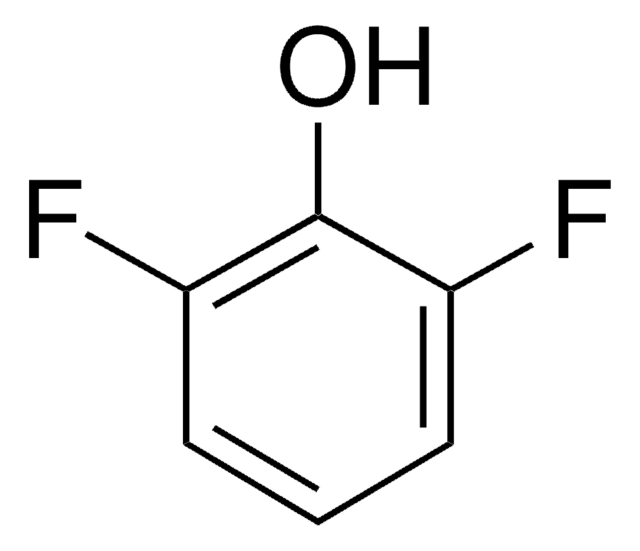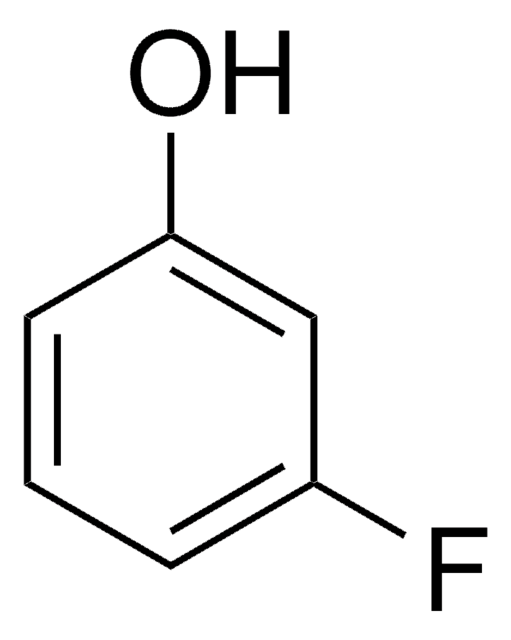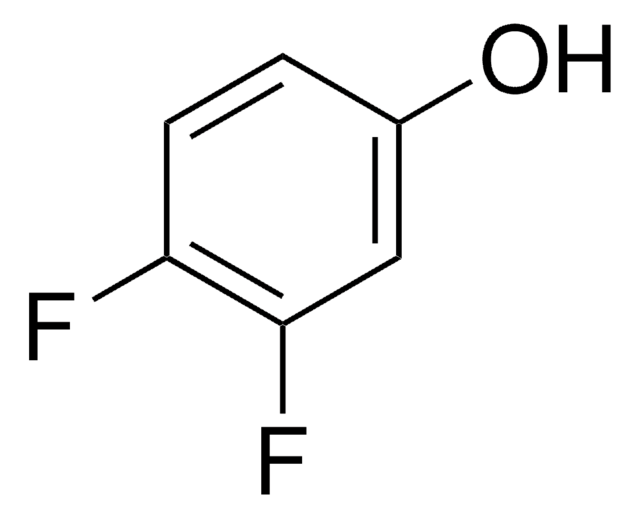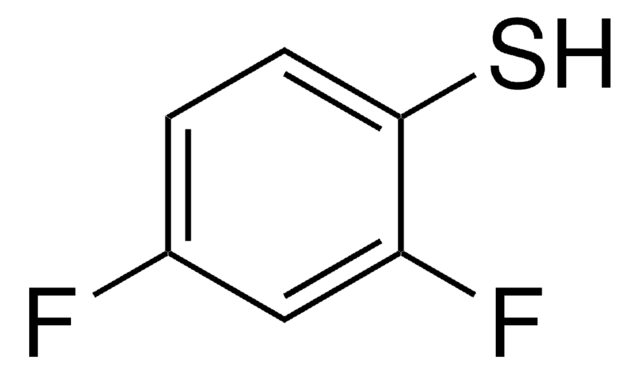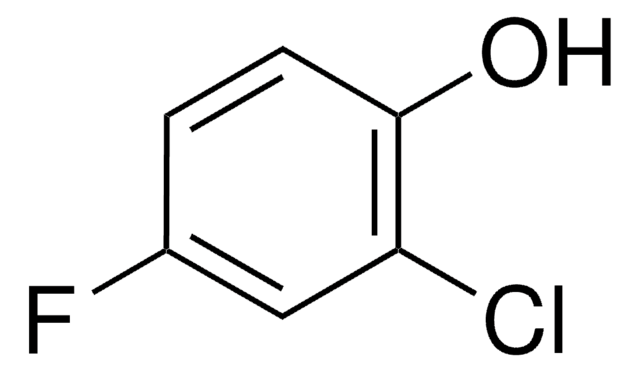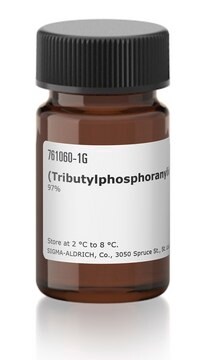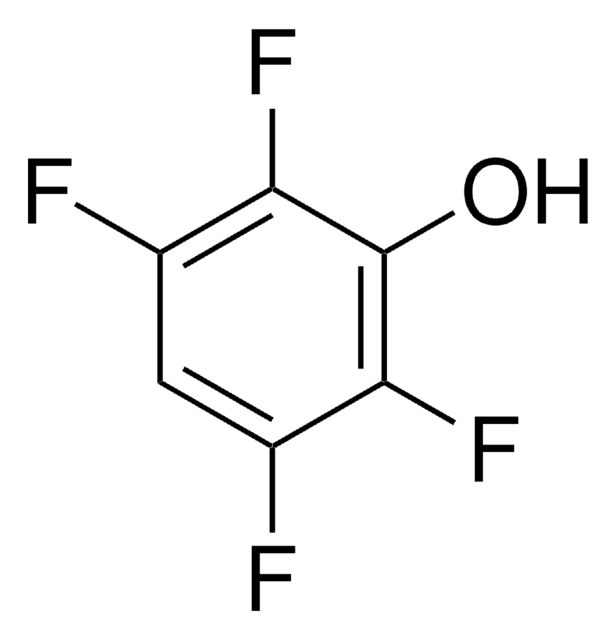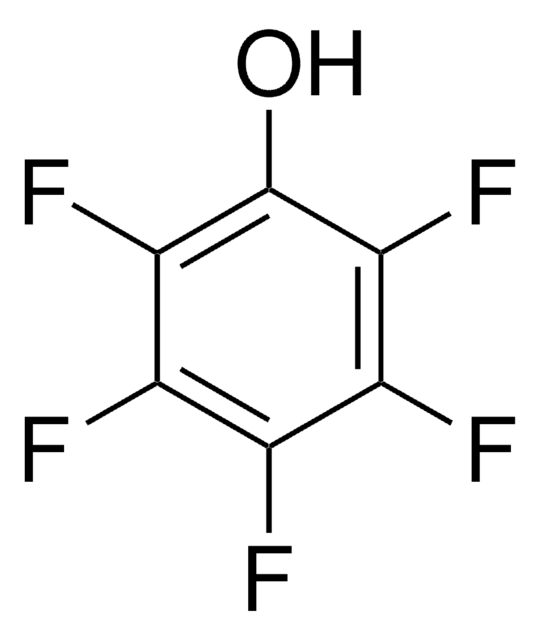All Photos(1)
About This Item
Linear Formula:
F2C6H3OH
CAS Number:
Molecular Weight:
130.09
EC Number:
MDL number:
UNSPSC Code:
12352100
PubChem Substance ID:
NACRES:
NA.22
Recommended Products
Quality Level
Assay
99%
form
solid
refractive index
n20/D 1.486 (lit.)
bp
52-53 °C/19 mmHg (lit.)
mp
22.4 °C (lit.)
density
1.362 g/mL at 25 °C (lit.)
SMILES string
Oc1ccc(F)cc1F
InChI
1S/C6H4F2O/c7-4-1-2-6(9)5(8)3-4/h1-3,9H
InChI key
NVWVWEWVLBKPSM-UHFFFAOYSA-N
Looking for similar products? Visit Product Comparison Guide
Application
2,4-Difluorophenol has been used:
- as starting reagent during the synthesis of 4,6-difluoro-5,7-dihydroxytryptamine
- in the synthesis of 3-carboxy-6,8-difluoro-7-hydroxycoumarin (Pacific Blue), fluorinated fluorescent dye
Signal Word
Danger
Hazard Statements
Precautionary Statements
Hazard Classifications
Acute Tox. 4 Oral - Eye Dam. 1 - Skin Irrit. 2 - STOT SE 3
Target Organs
Respiratory system
Storage Class Code
11 - Combustible Solids
WGK
WGK 3
Flash Point(F)
134.6 °F - closed cup
Flash Point(C)
57 °C - closed cup
Personal Protective Equipment
dust mask type N95 (US), Eyeshields, Gloves
Choose from one of the most recent versions:
Already Own This Product?
Find documentation for the products that you have recently purchased in the Document Library.
Customers Also Viewed
W C Sun et al.
Bioorganic & medicinal chemistry letters, 8(22), 3107-3110 (1999-01-05)
Two new fluorinated fluorescent dyes, 6,8-difluoro-7-hydroxy-4-methylcoumarin (Marina Blue) and 3-carboxy-6,8-difluoro-7-hydroxycoumarin (Pacific Blue), exhibit excellent photophysical properties among a series of novel fluorinated 7-hydroxycoumarins. Most of these fluorinated coumarins have quantum yields (0.63 to 0.89) equal to or higher than that
Genetically determined differences in noradrenergic input to the brain cortex: a histochemical and biochemical study in two inbred strains of mice.
B Berger et al.
Neuroscience, 4(7), 877-888 (1979-01-01)
Our team of scientists has experience in all areas of research including Life Science, Material Science, Chemical Synthesis, Chromatography, Analytical and many others.
Contact Technical Service